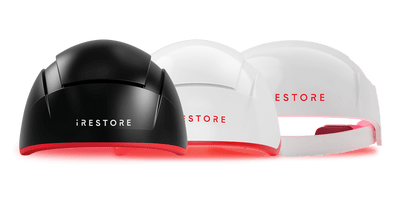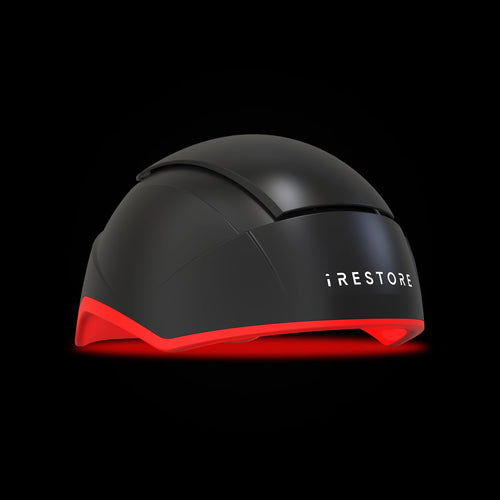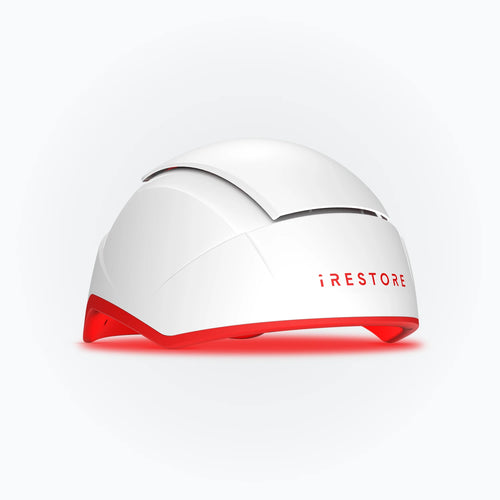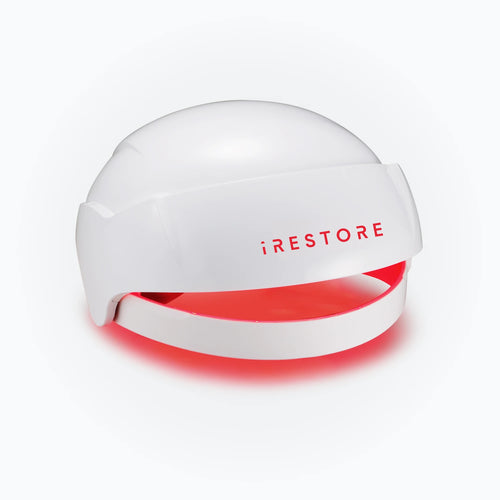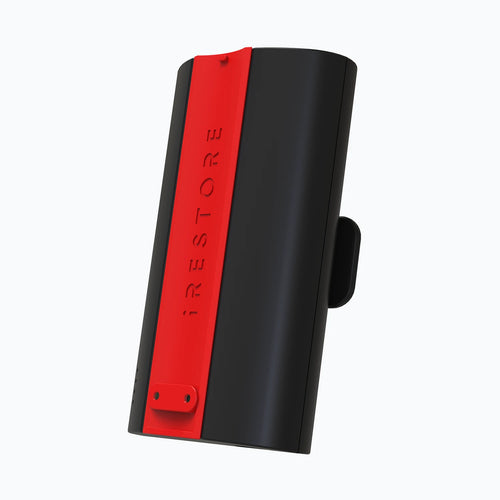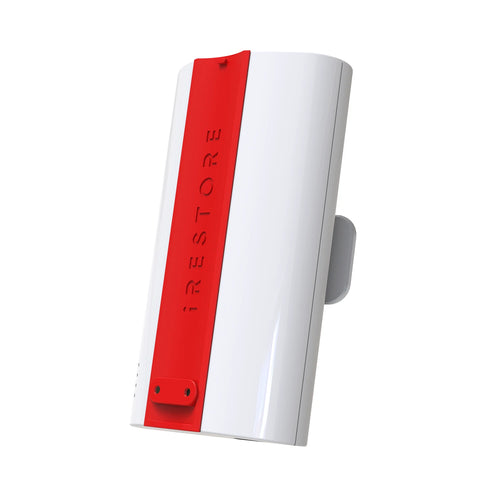Ever noticed your hair looking thinner or dull after a week of restless nights? You’re not imagining it. Poor sleep can directly impact your hair growth cycle, slowing down follicle renewal and even triggering excessive shedding over time.
According to a 2025 study published in the PubMed, people who consistently get less than 6 hours of sleep per night show higher levels of hair loss–related stress hormones like cortisol and reduced scalp blood flow, both of which interfere with healthy hair growth.
Your hair follicles, much like your skin cells, rely on nighttime recovery to repair and regenerate. When that process gets interrupted, follicles can enter the resting phase (telogen) prematurely, leading to visible thinning or shedding across the scalp.
But here’s the good news: sleep-related hair loss is rarely permanent. Once you understand the connection between sleep, stress, and follicle health, you can take the right steps to restore balance and regrow stronger strands naturally.
The Link Between Sleep and Hair Growth
Your body doesn’t stop working when you fall asleep in fact, that’s when much of the repair and regeneration happens. The same holds true for your hair follicles. During deep sleep, your body releases growth hormones and restores cellular energy (ATP) that fuels hair growth.
One of the most important hormones involved is melatonin, the same one that helps regulate your sleep-wake cycle. Several studies have found that melatonin supports hair follicle activity by extending the anagen phase: the active growth stage of the hair cycle. This means that when your sleep quality declines, melatonin levels drop, and your follicles may prematurely shift into the resting phase (telogen), slowing or halting hair growth.
On the flip side, consistent 7–8 hours of restorative sleep helps maintain balanced hormone levels, lower cortisol, and promote healthy scalp circulation, allowing follicles to function optimally.
When this balance is disrupted, you may begin noticing hair thinning, increased shedding, or slowed regrowth all subtle signs that your body is under sleep-related stress.
How Poor Sleep Triggers Hair Thinning
When you’re running on little to no rest, your body shifts into survival mode, prioritizing essential functions like heart rate and brain activity over nonessential ones including hair growth. That’s why chronic sleep deprivation often leads to hair thinning or shedding, especially around the temples and crown.
Lack of restorative rest elevates cortisol, the body’s main stress hormone. High cortisol levels disrupt the hair growth cycle, pushing more follicles into the telogen (resting) phase, a condition dermatologists call telogen effluvium. According to the American Academy of Dermatology, stress-induced telogen effluvium can cause up to 70% of hairs to prematurely enter shedding mode, a significant increase from the normal 10–15%.
Over time, this constant cycle of stress and poor sleep can weaken follicle cells, reduce scalp circulation, and limit the nutrients needed to sustain healthy growth. If left unchecked, this can make existing hair appear finer, weaker, and less dense.
Other Hidden Causes That Make Sleep-Related Hair Loss Worse
While poor sleep alone can slow down hair growth, it often works hand in hand with other everyday factors that silently damage your follicles. If you’ve been noticing hair thinning at the crown or increased breakage despite using the right products, one of these could be making things worse:
1. Nutrient Deficiencies
Your hair depends on nutrients like iron, vitamin D, and protein to stay strong. When your diet lacks these essentials: especially if you skip meals or rely on caffeine to power through sleepless days, your follicles receive fewer building blocks for new growth. This can make strands brittle and slow to regrow.
2. Hard Water and Scalp Buildup
Regular exposure to hard water can create mineral buildup on the scalp, blocking follicles and limiting oxygen flow, a perfect storm for hair thinning. Combined with lack of sleep, this buildup can slow cellular turnover and cause dullness.
3. Stress and Hormonal Imbalance
Inconsistent sleep throws your hormones particularly cortisol and thyroid hormones off balance. For many women, this also includes postpartum or menopause-related hair loss, where hormonal shifts are magnified by disrupted sleep cycles.
4. Poor Scalp Hygiene
When sweat, oil, and dead skin cells accumulate overnight, especially without regular cleansing, they can clog follicles and trigger inflammation. Over time, this weakens new growth and may lead to patchy hair loss or scalp sensitivity.
Sleep deprivation might set the stage, but these additional stressors amplify the effect making your scalp less resilient and slowing the hair recovery process. Addressing them together ensures you’re not just treating symptoms but restoring long-term follicle health.
How to Improve Hair Health Through Better Sleep
Rest isn’t just for your mind: it’s when your body heals, balances hormones, and restores energy to your hair follicles. By improving sleep quality, you can reduce stress, regulate hormones like melatonin and cortisol, and support healthy hair growth from within. Here are simple ways to make your nights more restorative and your strands stronger.
1. Maintain a Consistent Sleep Routine
Your hair growth thrives on rhythm. Going to bed and waking up at the same time every day helps stabilize the circadian rhythm, which controls hormone release and cell regeneration. Try winding down 30 minutes before bed with a screen-free activity like light stretching or meditation.
2. Eat for Sleep and Hair Health
Nutrients like magnesium, zinc, vitamin B6, and omega-3 fatty acids improve both sleep and hair strength. Foods like salmon, walnuts, spinach, and pumpkin seeds promote scalp circulation and follicle resilience. Pairing these with good sleep hygiene creates a powerful foundation for hair regrowth.
3. Create a Sleep-Supportive Environment
Dark, cool, and quiet environments enhance deep sleep. Try blackout curtains, aromatherapy with lavender, or white noise machines to reduce disturbances. Quality sleep keeps cortisol levels low, preventing stress-induced shedding.
4. Support Recovery with Red Light Therapy
Even with better rest, your follicles sometimes need extra help to restart active growth. That’s where iRESTORE’s FDA-cleared red light therapy systems make a difference. By stimulating cellular energy (ATP) and improving scalp circulation, iRESTORE helps strengthen follicles during their natural recovery phases even while you rest.
Getting 7–8 hours of quality sleep each night combined with proper nutrition, scalp care, and red light therapy can help reverse stress-related damage and restore fuller, healthier hair naturally.
Red Light Therapy: Repair While You Rest
Your body does its best healing work when you’re asleep and that’s exactly when red light therapy can amplify those natural repair processes.
Low-Level Laser Therapy (LLLT), also known as red light therapy, uses clinically proven wavelengths of light (around 650 nm) to stimulate the mitochondria within your scalp’s hair follicle cells. Think of mitochondria as your follicles’ power plants. When they receive red light energy, they produce more adenosine triphosphate (ATP), the molecule responsible for cellular energy and regeneration.
This increase in ATP helps your follicles:
-
Extend their anagen (growth) phase
-
Strengthen existing hair roots
-
Improve scalp circulation for better nutrient delivery
-
Reduce inflammation and oxidative stress linked to sleep-related hair loss
In a 2023 clinical review published in Lasers in Medical Science, researchers confirmed that consistent red light therapy sessions can increase hair density and thickness in both men and women with pattern or stress-induced hair loss all without medication or invasive procedures.
The best part? iRESTORE’s red light therapy systems are designed for hands-free, at-home use, meaning you can literally repair your follicles while you rest. Whether you use it before bed or during your wind-down routine, it works in sync with your body’s nighttime restoration cycle.
When to Seek Professional Help
If you’ve been improving your sleep habits but still notice persistent hair thinning, it may be time to consult a dermatologist or trichologist. While sleep-related hair loss is usually temporary, continued shedding could indicate deeper issues like thyroid imbalance, iron deficiency, or autoimmune conditions such as alopecia areata.
Here are a few signs it’s worth getting checked:
-
Hair shedding lasts more than three months despite lifestyle changes.
-
You notice visible thinning patches or a widening hair part.
There’s scalp redness, irritation, or tenderness. -
Hair loss is accompanied by fatigue, hormonal changes, or sudden weight fluctuations.
A professional evaluation can help identify underlying causes, perform a scalp analysis, and recommend bloodwork or targeted treatments. Pairing their advice with consistent at-home red light therapy ensures your follicles get both medical guidance and ongoing cellular support, the most effective combination for recovery.
Real People. Real Hair Growth Stories.
At iRESTORE, we believe nothing speaks louder than real results. Thousands of users across the world have experienced visible improvements in hair density, thickness, and confidence with our FDA-cleared red light therapy systems results. iRESTORE has helped people regain not just their hair, but their sense of self safely, naturally, and without medication. For detailed before & after results and what to expect, check out our article Red Light Therapy Before & After: Real Results Explained

Conclusion
Your sleep patterns have more to do with your hair health than you might think. When you consistently lose rest, your body produces excess cortisol, lowers melatonin, and slows the hair growth cycle all of which can lead to thinning and shedding over time.
The good news? This type of sleep-related hair loss is usually reversible. By improving your sleep hygiene, eating nutrient-rich foods, and managing stress, you give your follicles the recovery window they need to regrow stronger strands.
For added support, iRESTORE’s FDA-cleared red light therapy systems can help you take that recovery one step further. They work by boosting cellular energy (ATP) and improving scalp circulation, helping your follicles repair and regenerate even while you rest.
FAQ (Frequently Asked Questions)
1. Does lack of sleep cause permanent hair loss?
In most cases, lack of sleep does not cause permanent hair loss. Poor sleep triggers temporary shedding (known as telogen effluvium) by disrupting hormone balance and increasing cortisol levels. Once your sleep routine improves and stress stabilizes, hair typically regrows within three to six months.
2. How much sleep do you need for healthy hair?
Adults generally need 7–8 hours of quality sleep per night for optimal hair growth and hormone regulation. During deep sleep, your body produces growth hormones that fuel follicle repair and cell regeneration. Skipping sleep reduces this recovery time, leading to dullness and slower growth.
3. Can improving sleep restore lost hair?
Yes, improving sleep can help restore hair density and reduce shedding, especially when the loss is related to stress or fatigue. Quality sleep lowers cortisol and supports melatonin production, both crucial for the hair growth cycle. For faster results, pair good sleep habits with iRESTORE’s red light therapy, which stimulates follicles during recovery.
Read about how it works in iRESTORE Laser Hair Growth System Is Now Clinically Proven to Grow Hair
4. Is red light therapy safe to use before bed?
Absolutely. Red light therapy is non-invasive, drug-free, and safe for regular use even before bedtime. In fact, many users find that evening sessions help them relax while improving scalp circulation and follicle activity overnight.
Disclaimer: The iRESTORE blog is for informational purposes only and is not intended to replace professional medical advice or treatment. Please do not ignore professional guidance because of information you’ve read here. If you have concerns about your hair or skin health, we encourage you to consult a qualified healthcare professional.
